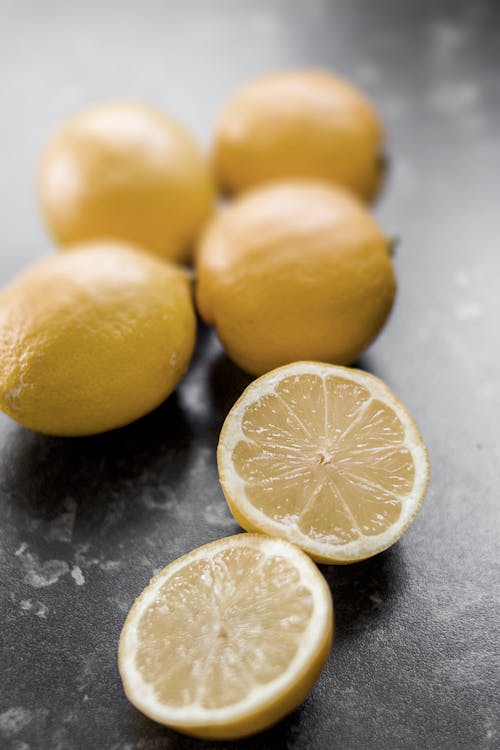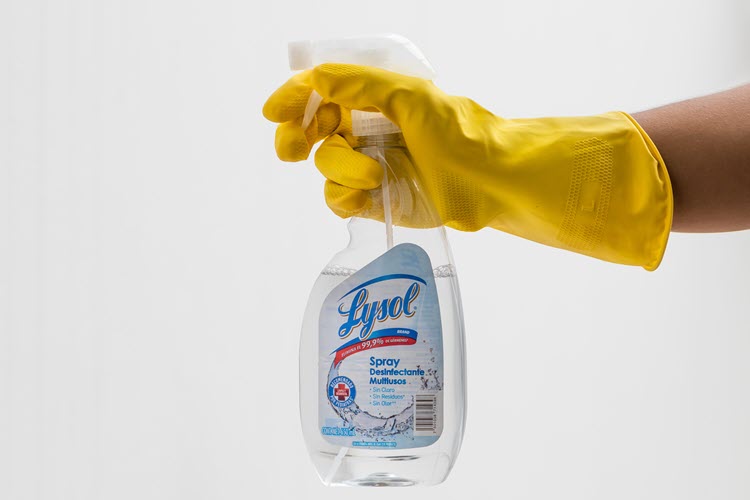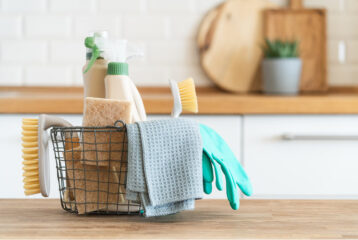It is a common misconception that you have to invest in harsh chemicals to kill germs. The truth is that there are many ways to sanitize and beautify your home without putting your family at risk. Here are a few chemical-free supplies you likely have in your home right now that can do more than their intended purpose.
Baking soda.
You might have noticed that your grandmother kept baking soda in the refrigerator, pantry, and cabinets. There is a good reason for this, and baking soda is an effective deodorizer. But it’s also extremely useful when cleaning stainless steel and stove tops. Taste Of Home also suggests that you can use baking soda to clean the microwave, dishwasher, and garbage disposal. Outside of the kitchen, baking soda makes an excellent soap scum remover and can even help dissolve oil stains from the driveway.
Vinegar.
Vinegar is most often associated with cooking, and it’s one ingredient that can add an extra element of interest to your favorite dishes. Fortunately, considering its low price and widespread availability, vinegar is also an excellent cleaning agent.
Because of its acidic properties, vinegar can dissolve oil and minerals from coffee makers, and it evaporates quickly as a window cleaner. For more on window cleaning, check out “How to Clean Windows with Newspaper.”
You can even pour a bottle of vinegar on spots of the lawn that you want to keep free of weeds.
Tea tree oil.
Tea tree essential oil is popular among holistic healers. But this Australian wonder also has antimicrobial and antiviral properties, making it an excellent addition to your cleaning caddy. A few drops of tea tree oil to your laundry can remove odors, while just a pinch in a cup of hot water and vinegar makes a great multipurpose cleaning spray.
Vodka.
Vodka is more than just booze. Used correctly, it is an effective cleaner and disinfectant. Vodka can make quick work of germs on cutting boards and kitchen countertops, and a light mist of this libation can eliminate odors from linens and shoes.

Image via Pexels
Lemons.
If you have vodka and lemons, you can make a great drink for a fun afternoon. Or, you can use each to spit shine your home. Lemons make an effective refrigerator and microwave refresher and can cut through soap scum in the bath and kitchen. Perhaps the greatest use for a lemon, however, is to simply cut it into pieces and drop it down the garbage disposal. This will help remove gunk, naturally deodorize, and kill bacteria.
Borax.
Borax is like baking soda’s big brother, and it’s a powerful cleaner that also acts as a natural bleach. A few of the more unknown uses for borax are as a drain unclogger and mold eliminator. Like many of the other products listed here, borax mixed with water and vinegar also makes an excellent all-purpose cleaner. And when the kids get creative, borax safely and effectively removes crayon from the wall.
Hydrogen peroxide.
Sure, you have used hydrogen peroxide to clean cuts and scrapes, but you likely had no idea you could use it on the grout or to help remove mold and mildew from the bathtub. Hydrogen peroxide is also effective at cleaning and refinishing metal and makes a great alternative to chemical-laden toilet cleaners. As an added benefit, many of your household plants can be protected from disease and root rot with a quick spritz of peroxide.
Although commercially-packaged cleaners are certainly convenient, they are not necessarily safe. But a quick rummage through the cabinets, and you will find all the ingredients you need to make your own cleaners. The best part: All of the above are effective and safe and, just as important, affordable.


